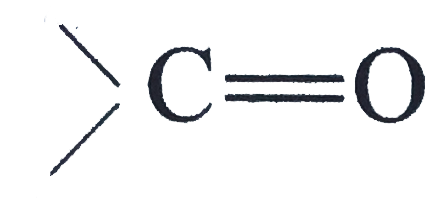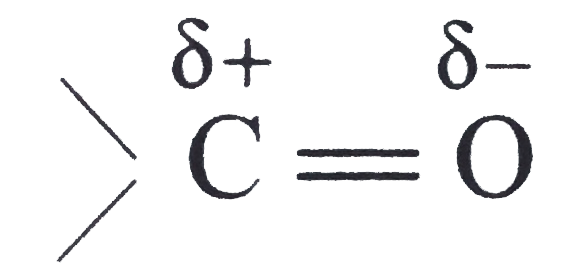Which among the following is most reactive to give nucleophilic addition?
A
FCH2CHO
B
ClCH2CHO
C
BrCH2CHO
D
ICH2CHO
Video Solution
Text Solution
The correct Answer is:A
FCH2CHO is most reactive towards nucleophilic addition since presence of most electrophilic addition since presence of most electronegative F withdraws electrons from carbon of carbonyl group making it more polar.
|
Topper's Solved these Questions
- ALDEHYDES, KETONES AND CARBOXYLIC ACIDSBOOK - NCERT FINGERTIPSCHAPTER - ALDEHYDES, KETONES AND CARBOXYLIC ACIDSEXERCISE - Chemical Reactions
66 Videos
- ALDEHYDES, KETONES AND CARBOXYLIC ACIDSBOOK - NCERT FINGERTIPSCHAPTER - ALDEHYDES, KETONES AND CARBOXYLIC ACIDSEXERCISE - MCQs( CHEMICAL REACTIONS )
2 Videos
- ALDEHYDES, KETONES AND CARBOXYLIC ACIDSBOOK - NCERT FINGERTIPSCHAPTER - ALDEHYDES, KETONES AND CARBOXYLIC ACIDSEXERCISE - Preparation Of Aldehydes And Ketones
11 Videos
- ALCOHOLS,PHENOLS AND ETHERSBOOK - NCERT FINGERTIPSCHAPTER - ALCOHOLS,PHENOLS AND ETHERSEXERCISE - Assertion And Reason
14 Videos
- AMINES BOOK - NCERT FINGERTIPSCHAPTER - AMINES EXERCISE - NCERT EXEMPLER PROBLEMS
1 Videos
Similar Questions
Knowledge Check
Aldehydes and ketones ar specially susecptible to nucleophilic addition because carbonyl group
 is polar (due to electronegativity difference between carbon and oxygen)
is polar (due to electronegativity difference between carbon and oxygen)

Positive charge on carbon makes it reactive towards the nucleophili. This addition is catalysed by acid.
Reactivity of carbonyl compound towards nucleophilic addition increases with increases in the electron deficiency at carbonyl carbon. Thus, (-I.E.)groups increase while (+I.E.) groups decrease the reactivity of carbonyl compound.
Which among the following is most reactive to give nucleophilic addtion ?AFCH2CHOBClCH2CHOCBrCH2CHODICH2CHOAldehyde and ketones are specially susceptible susceptible to nucleophile addition because carbonyl group
_E01_578_Q01.png) (due to electronegatvity different between carbon and oxygen).
(due to electronegatvity different between carbon and oxygen).
_E01_578_Q02.png)
Positive charge on carbon makes it reactive towards the nucleophile. This addition is catalysed by acid. Reactivity of carbonyl compound towards nucleophilic addition increases in the electron deficience at carbonyl carbon. Thus, (-I.E.) group increase while (+I.E.) groups decrease the reactivity of carbonyl compound
Which of the following is most reactve to give nucleophilic addition?AFCH2CHOBCICH2CHOCBrCH2CHODICH2CHOWhich among the following is most reactive in nucleophilic addition ?
AFCH2−CHOBCl−CH2−CHOCBr−CH2−CHODI−CH2−CHO
Which among the following is the most reactive?
View SolutionAldehyde and ketone undergo nucleophilic addition reaction because of polarity between >C=O group . The reactivity of carbonyl groups toward nucleophile depends upon the nature of inductive effect of froup present at carbonyl carbon.
Which among the following is more reactive towards nucleophilic addition reaction
View SolutionWhich of the following is most reactive towards nucleophilic addition reactions ?
View SolutionWhich of the following is most reactive towards nucleophilic addition reactions ?
View SolutionWhich of the following is most reactive toward nucleophilic substitution reaction ?
View Solution
